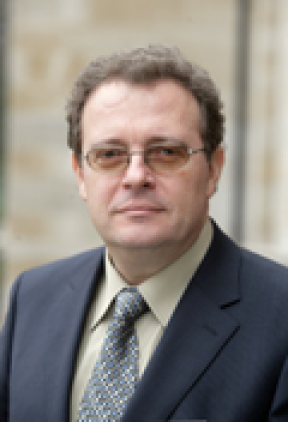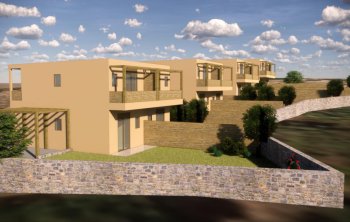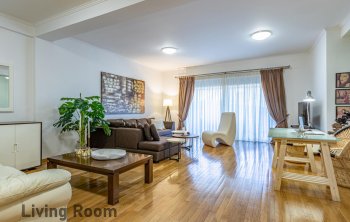Real Estate Blog
Interview an Expert: EU and National Funds supporting tourism investments in Crete
24 Jun 2020
Interview with Yiannis E. Troulis, CEO of TTMI Consulting Ltd. Supporting investments improving the quality of tourism in Crete through the main sources of Supprort Programs: the NSRF (National Strategic Reference Framework) and the Investment Incentives Law (National Statutory Framework for Private Investment).
Expert's Profile
Yiannis E. Troulis was born in Greece and lived in Canada for 23 years. He holds a Bachelor of Commerce with a Μajor in Finance & a Μinor in International Business from Concordia University in Canada and an MBA from the Open University of Cyprus. He has 16 years of management experience in Canada in international trade of foodstuffs.He owns TTMI Consulting Ltd. and has been working over 20 years as a management consultant for the private and public sector in Greece and abroad. He has served as Greece’s business representative, at the Business Chamber of the Enterprise Policy Group, a policy consulting body of the DG Enterprise & Industry of the EC. He is presently General Secretary of the Canadian-Hellenic Chamber of Commerce and teaches Technology Transfer at the Interinstitutional Program of Postgraduate Studies in Bioentrepreneurship.
The last years in Chania there is an increased demand for rental villas mostly during the summer months. This has resulted in the construction of many such accomodations. Are there any programs that support the construction of such developments?
Y.T. : Yes, on occasion there are programs (or Actions as they are called) supporting investments in improving the quality of the local tourism offering. In some cases the support is targeted to new entreprises (which is mostly for the cases you referred to) and in others is targeted to existing hotels and villas for expansion and/or improvements.
Which are the sources of support actions for the Region of Crete?
Y.T. : It depends on the broader program that manages the support actions. The basic sources of support actions are: the NSRF (National Strategic Reference Framework) which refers to the european structural funds framework supporting the convergence of the Greek economy to the EE’s average, a constant, renewable for 6-year periods, tool aiding private and public investments, infrastructure, education/training, etc. and the Investment Incentives Law which the national statutory framework for Private Investment Aid Schemes and they are called. NSRF provides subsidy of usually up to 50% of the total eligible investment and the Incentives Law provides aid through income tax exemption and subsidies at varying intensities depanding on the region: for Crete is 25-45% depending on the SME size. For new and small enterprises is 45%.
Who is eligible for a grant to start a tourism business? Applications are only made by companies or can individuals also apply? Are there any restrictions for non-Greek nationals?
Y.T. : Any natural or legal person, eligible to legally invest and operate a tourism related enterprise. Foreigners are included providing that they operate through a legal entity with tax residence in Greece.
What are the eligible expennses? Is for example the purchase of land supported?
Y.T. : The eligible expenses are: landscaping, construction and/or renovation, equipment (including furniture), promotion, advertsiment, consulting and engineering support and occasionaly personnel support. Land purchase is not supported.
What are the main constraints that the prospective investor should consider? What is the procedure for submitting the proposal?
Y.T. : The basic limitations are: a) adequate funding: the investor should be able to fund the expenditures on his own up until the submission of the request to review expenditures, they are reviewed and only then the investor received the corresponding subsidy. There can be 1-2 resuests for expenditure review. b) when involving subsisdy processes, the investor should expect long delays (4-12 months) for evaluation, for each of the processes (submission and expense review).
The application process begins with the call/tender asking investors to submit applications and a meeting with the consulting office that supports the process. In our office, we initially discuss with the investor the challenges and the framework of the subsidy process (legal, time, documentation, funding, etc.) so that they adequately informed before embarking in the process.
What are the main stages of the process from start to finish?
Y.T. : The action call/tender provides for a submission date, usually 3 months later, which almost always is extended few weeks, as well as a detailed process and noumerous documents including a business plan. The proposals evaluation period is apporx. 5-12 months and providing they are approved, the investors have 24-36 months to completely materialize the investments. During he construction/materialization period, investors may submit 1-2 intermediary expenditure review requests which take a few months to complete upon which they receive the corresponding funding. There are always certain milestones during the implementation process, such as to obtain a building license or/and actually achieve a certain percentage of the expenditures within predetermined time periods.
What characteristics must a proposal have in order to have increased or serious chances of being accepted?
Y.T. : The basic characteristics of potentially successful submission are: adequate funding by the investor, experience of the owners/operators in the sector and the quality of the business plan. Unfortunately, every new call has its own partcularities but the above three basic criteria are always relevant.
There is a growing interest in alternative forms of tourism and especially rural tourism. The new trend is the so-called Glamping (glamorous camping) with many and fanatical supporters. Are there any programs to support such business activities for Crete?
Y.T : The last action/call for new tourism enterprises actually targeted to support the alternative types of tourism besides the traditional ones. As long as there will be new calls in the future, we expect that they will support all the alterntive types of tourism including Glamping.
Your company is based in Athens, but I know that you are also active in the rest of Greece. Do you undertake projects in Chania?
Y.T : Our base is in Athens and actually in Marousi but our clientele is all over the country. Given that the decision making regarding development and funding is centralized in the capital, where the ministries, agencies, program managing authorities etc. we find it that proximity can occasssionally be usuful to conveniently resolve issues as they may arise. In Chania, my birth town, we undertake many projects as a result from the long collaboration with the Chamber of Commerce, municipalities and businesses in the area.
TTMI Consulting Ltd
44, Leof. Kifisias, Bldng C, 5th floor
Marousi, 15125, Greece
Tel.: +30-210-3229-635
© 2020 - 2024 Broosco. All rights reserved
Don't miss the conversation!
Join us to get the information you need, straight to your inbox...
SIGN UP






